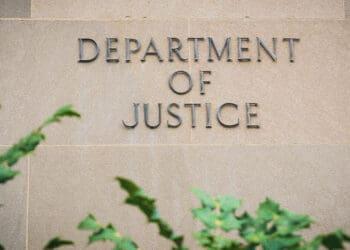5 Additional Notable Features
The second installment of this two-part series from FCPA expert Matteson Ellis discusses several notable features of Mexico’s National Anti-Corruption System (the SNA). Companies doing business in Mexico should bone up on the SNA, as its implications could be broad. Organizations that could stand to bolster their compliance programs ought to do so now.
This article was republished with permission from FCPAméricas Blog, for which Matteson Ellis is founder, editor and regular contributor.
A prior post highlights five notable features of the new National Anti-Corruption System (SNA) in Mexico. This post discusses five more that could be particularly relevant to non-Mexican companies and individuals.
Individual Liability Bolstered
The SNA establishes the General Law of Administrative Liabilities and amends the Federal Criminal Code in ways that bolster individual liability for bribery and bribery-related offenses. Mexican and non-Mexican individuals will be liable for “serious administrative offenses,” such as bribery, collusion in public bid procedures, influence peddling, wrongful use of public resources and wrongful recruitment of ex-public servants. The burden of proof for the administrative violation is relatively low – “beyond a reasonable doubt” – and the statute of limitations is long – seven years. Individual administrative sanctions include monetary penalties up to twice the amount of the acquired benefits and, if there is no tangible benefit, approximately US$600,000. Sanctions can also include debarment from public contracting of up to eight years, as well as compensatory damages and lost profits to the public treasury. The Federal Criminal Code also establishes criminal liability for bribery of Mexican and non-Mexican officials, as well as use of false information in procurement processes and influence peddling.
Corporate Liability Established
The General Law of Administrative Liabilities applies to both Mexican companies and foreign companies with a presence in Mexico. Corporate entities will be liable for “serious administrative offenses,” including bribery, collusion in public bid procedures, influence peddling, wrongful use of public resources and wrongful recruitment of ex-public servants, when acts related to the offenses are committed by individuals acting in the name of or representing the entity. This can include acts of agents and other third parties. Administrative sanctions can reach up to twice the amount of the benefit or, if no monetary benefit, up to approximately US$6 million. They can also include debarment of up to 10 years from public contracting, suspension of activities for up to three years, dissolution of the corporate entity and the payment of damages, compensatory damages and lost profits to the public treasury. Corporate criminal liability can be established if the government determines that an individual acting on behalf of the company committed a criminal offense and the company did not have an adequate compliance program in place to prevent the act. Criminal penalties can include fines, suspension, debarment and direct intervention of the government in the company’s operations.
Mitigation for Compliance Programs
The General Law of Administrative Liabilities explicitly provides mitigation for companies that have adequate compliance programs in place. It describes seven components for an adequate program:
- a clearly-written organization and procedures manual that delineates leadership responsibilities;
- a code of conduct;
- adequate and effective supervision, audit and control systems to constantly and periodically examine compliance of integrity standards throughout the organization;
- whistleblower and reporting systems with disciplinary procedures for employees who violate company policies or Mexican law;
- training;
- nondiscriminatory HR policies that prevent hiring individuals who could compromise the company’s integrity; and
- mechanisms that ensure transparency and disclosure of interests.
Leniency Mechanisms Established
The General Law of Administrative Liabilities provides that corporate entities may receive credit for self-reporting misconduct and cooperating with government investigations. An individual can also reduce sanctions amounts by between 50 percent and 70 percent in the event the individual confesses and cooperates with government authorities.
National Digital Platform Created
The SNA establishes a new digital platform that plays various roles: it serves as an anonymous reporting mechanism for the public; creates a registry of companies and individuals sanctioned for corrupt acts; provides information about public procurements to improve transparency; and creates a registry of public servant tax returns, statements of assets and declarations of conflicts of interests.
Uncertain Future
A critical question going forward relates to whether this impressive system of processes, mechanisms and laws will be implemented in a meaningful way. For example, the SNA is designed to facilitate international cooperation. Mexican authorities are expected to collaborate with international authorities to strengthen investigations and share international best practices. A coordinating committee is empowered to take part in international collaboration mechanisms for fighting corruption. Whether these efforts will in fact happen is uncertain. Similarly, only time will tell if the Mexican government will adequately fund the SNA’s various components. While the current presidential administration has generally been behind the SNA efforts, the 2018 elections might bring a new president whose support is less clear.
The opinions expressed in this post are those of the author in his or her individual capacity and do not necessarily represent the views of anyone else, including the entities with which the author is affiliated, the author`s employers, other contributors, FCPAméricas or its advertisers. The information in the FCPAméricas blog is intended for public discussion and educational purposes only. It is not intended to provide legal advice to its readers and does not create an attorney-client relationship. It does not seek to describe or convey the quality of legal services. FCPAméricas encourages readers to seek qualified legal counsel regarding anti-corruption laws or any other legal issue. FCPAméricas gives permission to link, post, distribute or reference this article for any lawful purpose, provided attribution is made to the author and to FCPAméricas LLC.



 Matteson Ellis serves as Special Counsel to the FCPA and International Anti-Corruption practice group of Miller & Chevalier in Washington, DC. He is also founder and principal of Matteson Ellis Law PLLC, a law firm focusing on FCPA compliance and enforcement. He has extensive experience in a broad range of international anti-corruption areas. Previously, he worked with the anti-corruption and anti-fraud investigations and sanctions proceedings unit at The World Bank.
Mr. Ellis has helped build compliance programs associated with some of the largest FCPA settlements to date; performed internal investigations in more than 20 countries throughout the Americas, Asia, Europe and Africa considered “high corruption risk” by international monitoring organizations; investigated fraud and corruption and supported administrative sanctions and debarment proceedings for The World Bank and The Inter-American Development Bank; and is fluent in Spanish and Portuguese.
Mr. Ellis focuses particularly on the Americas, having spent several years in the region working for a Fortune 50 multinational corporation and a government ethics watchdog group. He regularly speaks on corruption matters throughout the region and is editor of the FCPAméricas Blog.
He has worked with every facet of FCPA enforcement and compliance, including legal analysis, internal investigations, third party due diligence, transactional due diligence, anti-corruption policy drafting, compliance training, compliance audits, corruption risk assessments, voluntary disclosures to the U.S. government and resolutions with the U.S. government. He has conducted anti-corruption enforcement and compliance work in the following sectors: agriculture, construction, defense, energy/oil and gas, engineering, financial services, medical devices, mining, pharmaceuticals, gaming, roads/infrastructure and technology.
Mr. Ellis received his law degree, cum laude, from Georgetown University Law Center, his masters in foreign affairs from Georgetown’s School of Foreign Service, and his B.A. from Dartmouth College. He co-founded and serves as chairman of the board of
Matteson Ellis serves as Special Counsel to the FCPA and International Anti-Corruption practice group of Miller & Chevalier in Washington, DC. He is also founder and principal of Matteson Ellis Law PLLC, a law firm focusing on FCPA compliance and enforcement. He has extensive experience in a broad range of international anti-corruption areas. Previously, he worked with the anti-corruption and anti-fraud investigations and sanctions proceedings unit at The World Bank.
Mr. Ellis has helped build compliance programs associated with some of the largest FCPA settlements to date; performed internal investigations in more than 20 countries throughout the Americas, Asia, Europe and Africa considered “high corruption risk” by international monitoring organizations; investigated fraud and corruption and supported administrative sanctions and debarment proceedings for The World Bank and The Inter-American Development Bank; and is fluent in Spanish and Portuguese.
Mr. Ellis focuses particularly on the Americas, having spent several years in the region working for a Fortune 50 multinational corporation and a government ethics watchdog group. He regularly speaks on corruption matters throughout the region and is editor of the FCPAméricas Blog.
He has worked with every facet of FCPA enforcement and compliance, including legal analysis, internal investigations, third party due diligence, transactional due diligence, anti-corruption policy drafting, compliance training, compliance audits, corruption risk assessments, voluntary disclosures to the U.S. government and resolutions with the U.S. government. He has conducted anti-corruption enforcement and compliance work in the following sectors: agriculture, construction, defense, energy/oil and gas, engineering, financial services, medical devices, mining, pharmaceuticals, gaming, roads/infrastructure and technology.
Mr. Ellis received his law degree, cum laude, from Georgetown University Law Center, his masters in foreign affairs from Georgetown’s School of Foreign Service, and his B.A. from Dartmouth College. He co-founded and serves as chairman of the board of 








